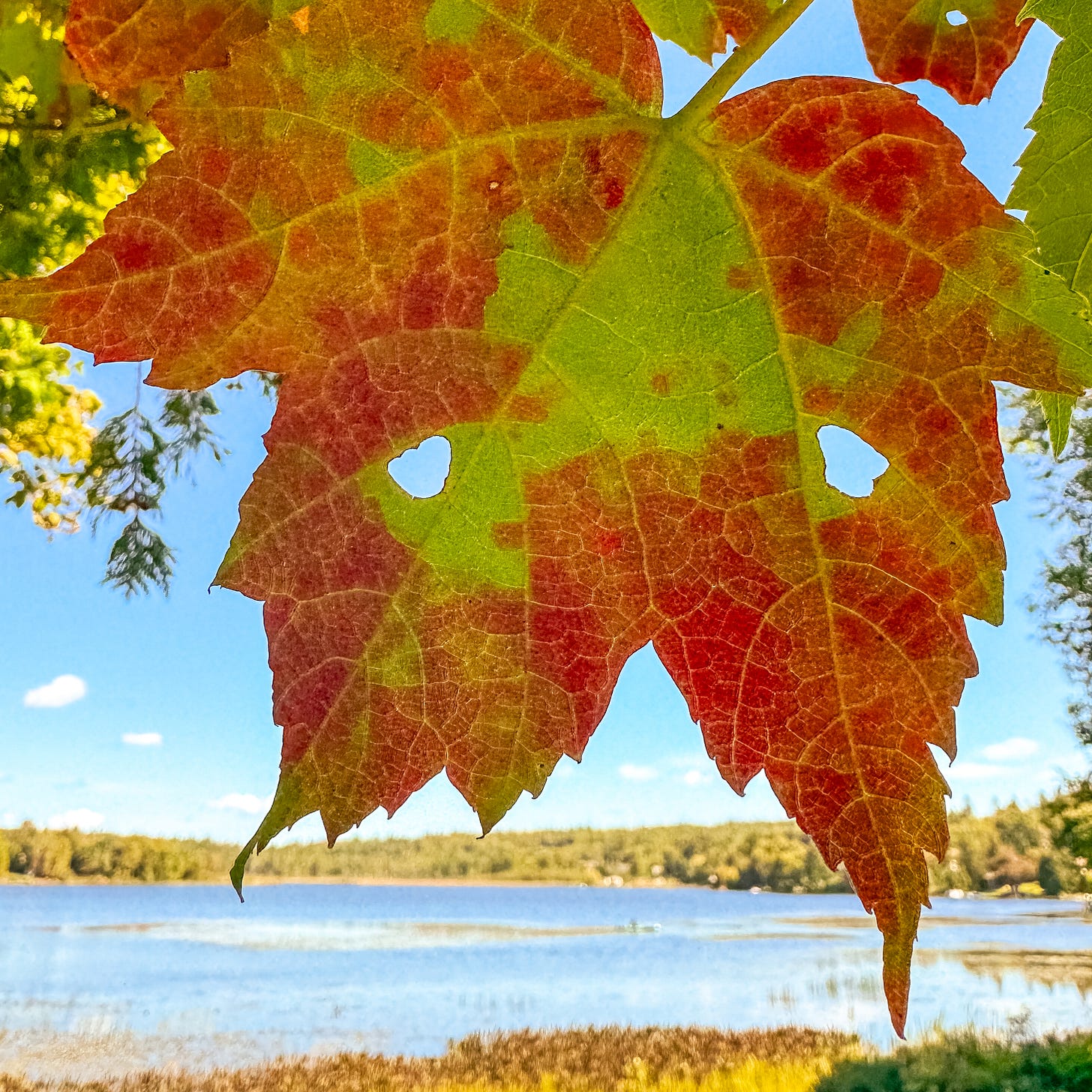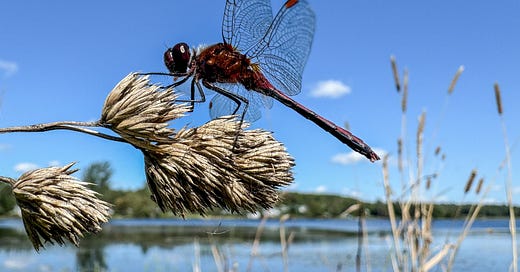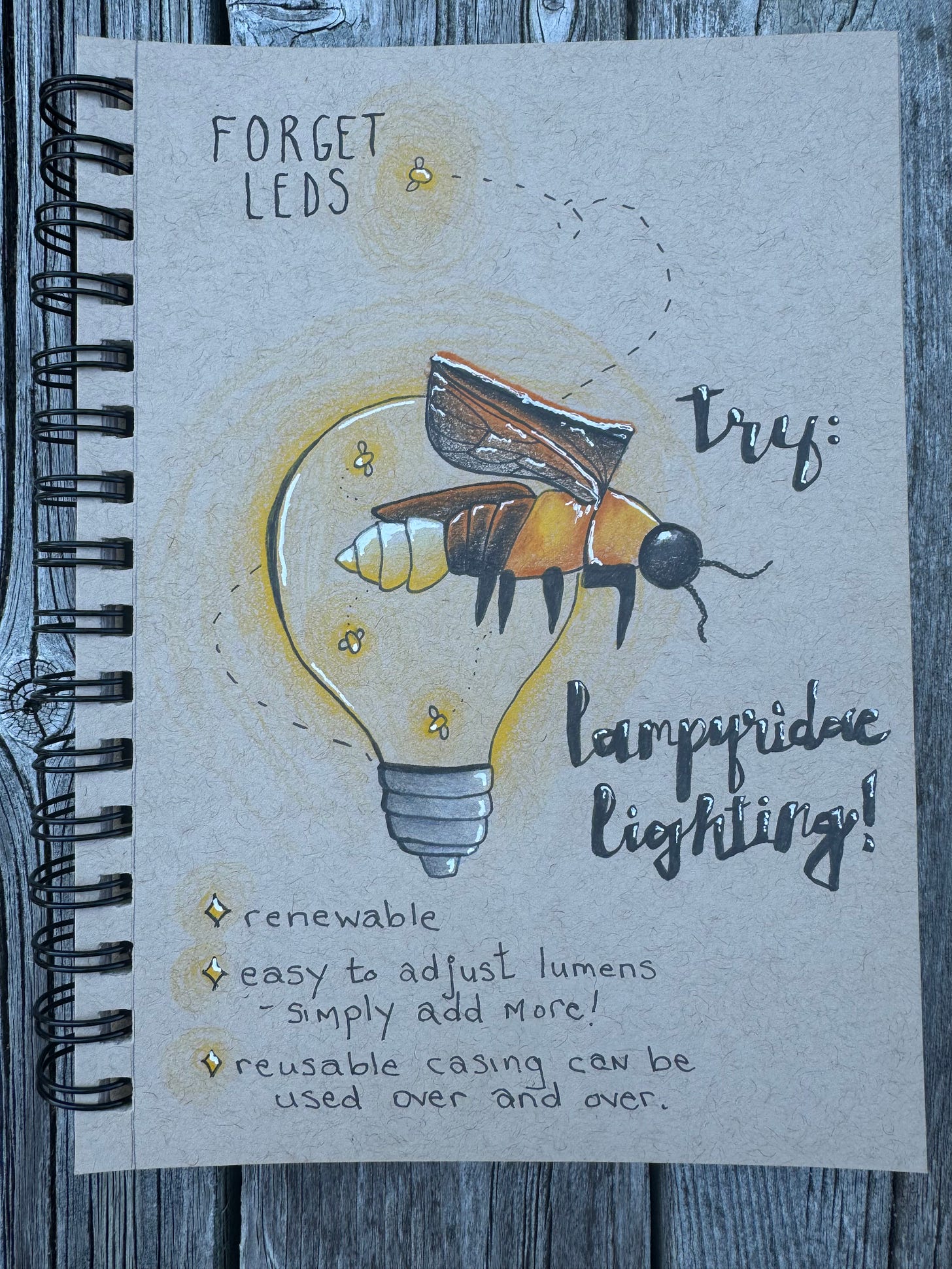Eternity in an Hour (#126)
How can anyone argue that "too much science" robs us of wonder? Plus: Week 2 of #SciArtSeptember
I’m walking slowly along the gravel travel at Ritchie Lake. It’s my lunch hour, and I’ve popped down with my camera to see if any migratory friends are resting in the waters. Only mallards are there, though - bathing in the waters thick with lily pads and late summer grasses. No matter; the sun is warming and I’m grateful to feel the rays on my SPF-slathered face. I keep walking, pausing to notice the changing leaves - so much earlier than previous years, it feels.
A dragonfly catches my eye, resting for “eternity in an hour” on a bleached grass as I try some macro photography with my phone. Eventually, a breeze brushes across the lake, and with it, the dragonfly. It’s off to find another sun-soaked plant to enjoy the warmth.


Even in this small segment of a day - a day like any other day - I can’t help but marvel at the wonder baked into our world at every turn. I want to learn more about the dragonfly, the colour change in the leaves, the mixture of chemicals that keeps my face protected from the harmful radiation bundled into the afternoon light.
So how can anyone say that science - that noble pursuit of knowledge in a systematic fashion - robs us of wonder because it requires that systematic analysis? (After, mind you, claiming science is only useful in utilitarian ways.) That somehow, the drive to measure and replicate in order to understand these fine details (and unveil even more questions to be answered) is “scientism” that dilutes the marvels before us?

Is the assumption that learning more about something makes it less magical?
Maybe I’m strange; I find it more fascinating to know how a magic trick works. Penn and Teller are more entertaining as magicians because they show you the mechanics that go into making the impossible seem accessible and possible, with the right skill and dedication.
Not unlike, well, science.
Even more, science inspires marvel in the real world but also the make-believe world - the fictional extensions of “what is possible” to “what could be”, via science fiction; arguably, good works are grounded in some scientific basis. Is that not again science causing wonder?
What a strange article to read this week. What a pitiful position, when we have worlds with dragonflies and red maples leaves and autumn sunlight.
This Week in SciArt
Last week, I shared my take on the Week 1 prompt for #SciArtSeptmber, “Horror”. For Week 2, we turn our attentions to the world of “Science Fiction”.
I began thinking, “What could be possible with a stretch of the imagination?” My mind turned to the climate and greener sources of energy, while also picking up a thread of last June’s glorious field of fireflies.1
The next thing I knew, I was creating a new sustainable light bulb: Lampyridae Lighting.
In a foggy town like mine, maybe this will be a more viable option than lamps using solar power. I’ll let you know when the patent gets accepted.
I’m not sure how my brain darts between connections like this, to be honest.





Great post, Bryn - and your photographs are gorgeous! And your lightbulb is AWESOME!
I'm fascinated that 'scientism' - a word I've never come across before, defined in that NYT piece as 'the inexorable drive to systematically quantify and explain everything' - is being used to beat up science itself.
Such a shame. The world would be a much poorer place without the 'why'!
You’re inspiring me to seek out a brown paper sketchbook…I love the contrast!